One year on - the Five, Cuba and the US blockade
Campaign News | Tuesday, 15 December 2015
Watch the moment the Five returned to Cuba and were reunited with their families and each other again
One year ago the final three members of the Miami Five returned home, and Cuba and the US made historic announcements that they would establish diplomatic relations.
While we welcome the significant progress in relations between the two countries there is still so much to be done: the US Blockade is still in place, Guantánamo Bay is still illegally occupied and the US still maintains a series of aggressive policies towards Cuba.
Today we review significant moments from the last 12 months and look forward to future challenges for Cuba and the Cuba Solidarity Campaign.
Thank you for all your past efforts and those you will make in the future. We look forward to welcoming the Miami Five to Britain in 2016, and continuing to campaign together to end the blockade once and for all.
The last 12 months
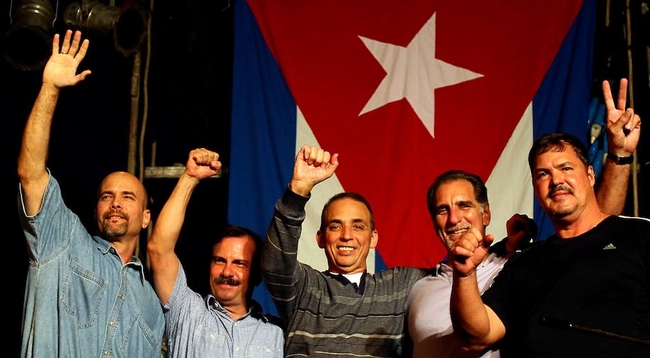
17 December 2014
Cuba and the US announce the establishment of diplomatic ties. The final three members of the Miami Five are released and return home to Cuba after more than 16 years unjust imprisonment in US jails.
Statements by the Cuban and US governments announce diplomatic relations will be established.
Read the statements here
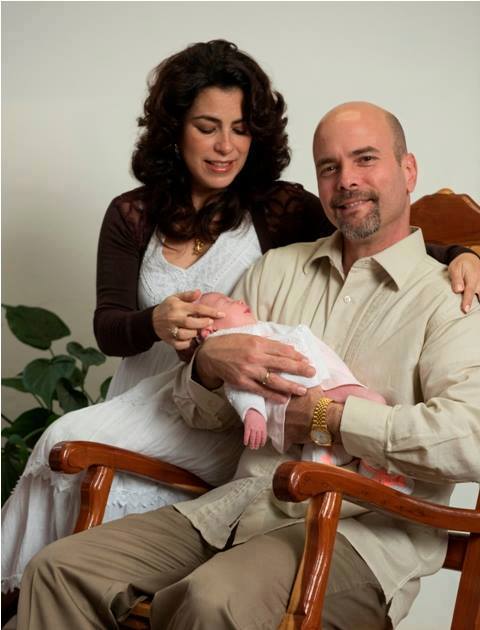
24 December 2014
The US State Department announces $11 million in grants for US and foreign-based organisations to run "civil, political and labour rights" (aka regime change) programmes in Cuba.
6 January 2015
Gema Hernandez, the daughter of Miami Five prisoner Gerardo and his wife Adriana is born. The "miracle" baby is the result of secret IVF treatment begun while Gerardo was in jail and despite the fact Adriana was denied a visa to visit her husband for almost his entire sentence.
22 January 2015
Diplomatic relations begin between the two countries, with the first round of talks taking place in Havana.
11 April 2015
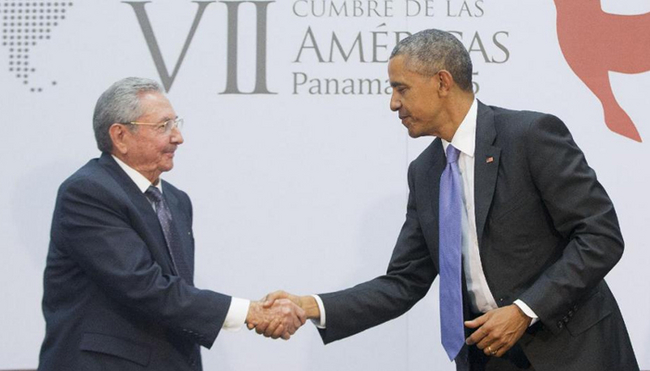
Read Castro's speech here.
29 May 2015
Cuba is officially removed from the US government's State Sponsors of Terrorism list.
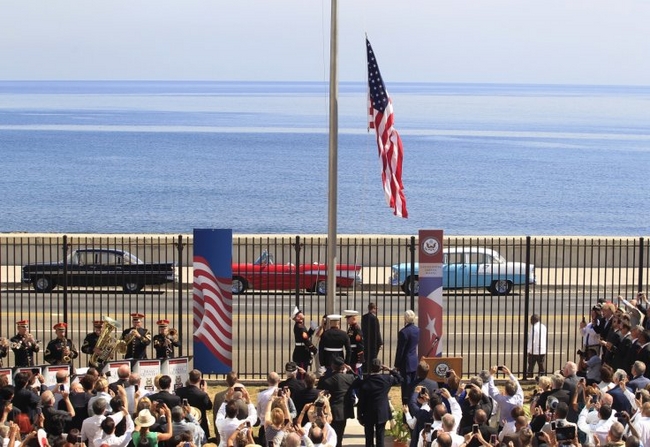
12 June 2015
The US Appropriations Committe approves $30 million for programmes to "promote democracy and strengthen civil society" (aka regime change) in 2016. This is on top of $20 million already assigned for similar activities in 2015.
20 July and 17 August 2015
The Cuban embassy in Washington DC is opened on 20 July, closely followed by the US Embassy in Havana on 17 August. Watch the Democracy Now report from the US Embassy opening in Havana.
9 September 2015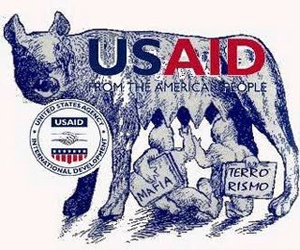
16 September 2015
Cuba presents its 2015 report on the impact of the blockade in advance of the United Nations vote. It estimates that the US policy has cost the country more than $833 billion over five decades.
3 October 2015
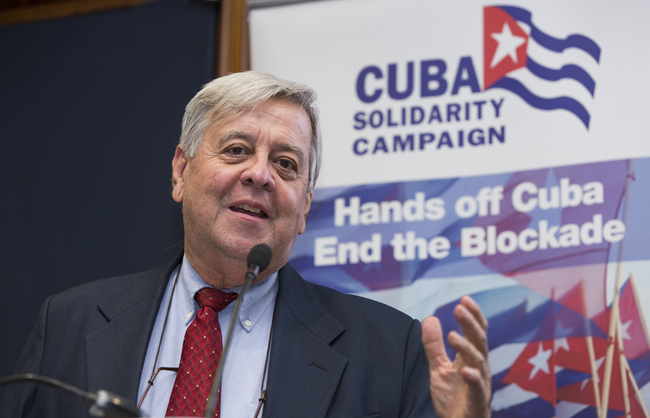
“We might end up with the American electorate deciding to elect Marco Rubio, Jeb Bush, Donald Trump – nobody knows what the possibilities are … We haven’t reached the moment where these processes are irreversible yet." Former Cuban diplomat Carlos Alzugaray.
27 October 2015

“The lifting of the blockade will be the essential element to give some meaning to the progress achieved over the past few months in the relations between both countries and shall set the pace towards normalization.”
Cuban Foreign Minister Bruno Rodriguez.
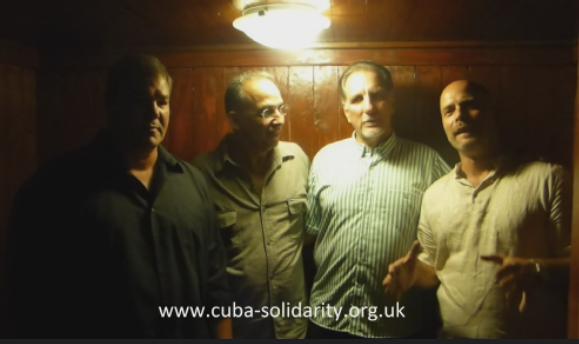
10 November 2015
A historic ruling by the British Court of Appeal opens the door for René González and other members of the Miami Five to visit Britain in 2016. The Court ruled that the British government had breached the freedom of MPs to hear from René after they denied him a visa to attend a meeting at the House of Commons. The Miami Five have already visited more than 20 countries between them since their release but the British government has denied them visas. Watch the Five's recorded thank you message.
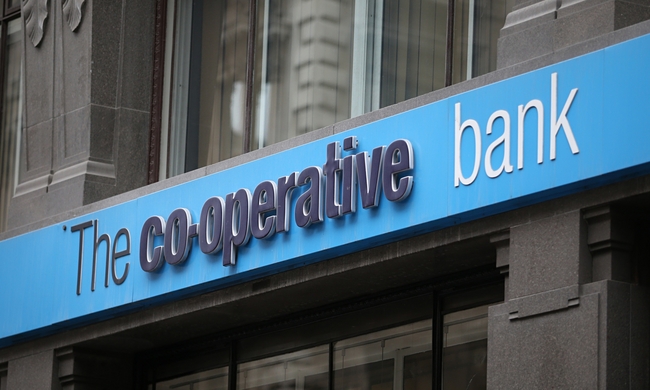
18 November 2015
Joint agreements on environmental protection and marine conservation are signed between Cuba and the US - the first direct cooperative agreements reached since negotiations between the two countries began.
25 November 2015
News breaks that the Cooperative bank has closed theaccount of the Cuba Solidarity Campaign as the bank has changed “its risk appetite”. A campaign against this is launched.
December 8 2015
Cuba and the US begin talks on property claims by individuals and companies who left Cuba after the Revolution in 1959. The two countries also agree to reestablish a direct postal service after more than five decades without one.
What next for 2016?
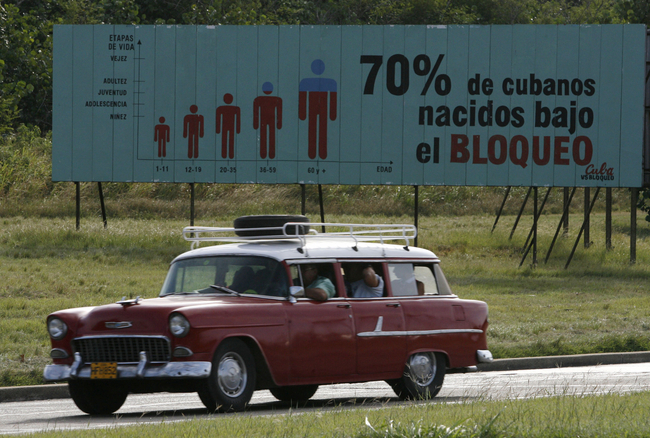
Bills will be presented before Congress in 2016 which aim to relax travel by US citizens and increase trade with Cuba. However, the cornerstones of blockade legislation: the Helms-Burton Act, the Trading with the Enemy Act, and the Cuban Democracy Act remain in place and must be removed before the blockade can end.
There are five core issues which need to be tackled before relations between the two countries can be considered normal:
- The blockade should end
- The US should stop funding illegal, subversive policies against Cuba, including TV and Radio Martí propaganda broadcasts
- Cuba should be compensated for damages caused by the blockade
- The illegally occupied territory of Guantánamo Bay should be returned
- The Cuban Adjustment Act, which stimulates brain drain and encourages economic migration should be revoked
Action by the US Congress is essential to make these changes. But our own British government has a role to play in joining international pressure on the United States government to end the blockade and return Guantánamo to Cuba, as well as ending discriminatory banking practices which impact on British companies.
Please support the campaign to end the US blockade by joining CSC here, or donating to our campaigning work in 2016 here.
“I believe that just as in the case of the Five, the blockade will only be defeated by Cuban resistance and global solidarity. The solidarity campaign must continue working. Be very, very alert to the manoeuvres which could be taken against Cuba. There are people in the United States who are not happy about what is happening.”
Arleen Rodriguez speaking at Cuban Futures 2015.






